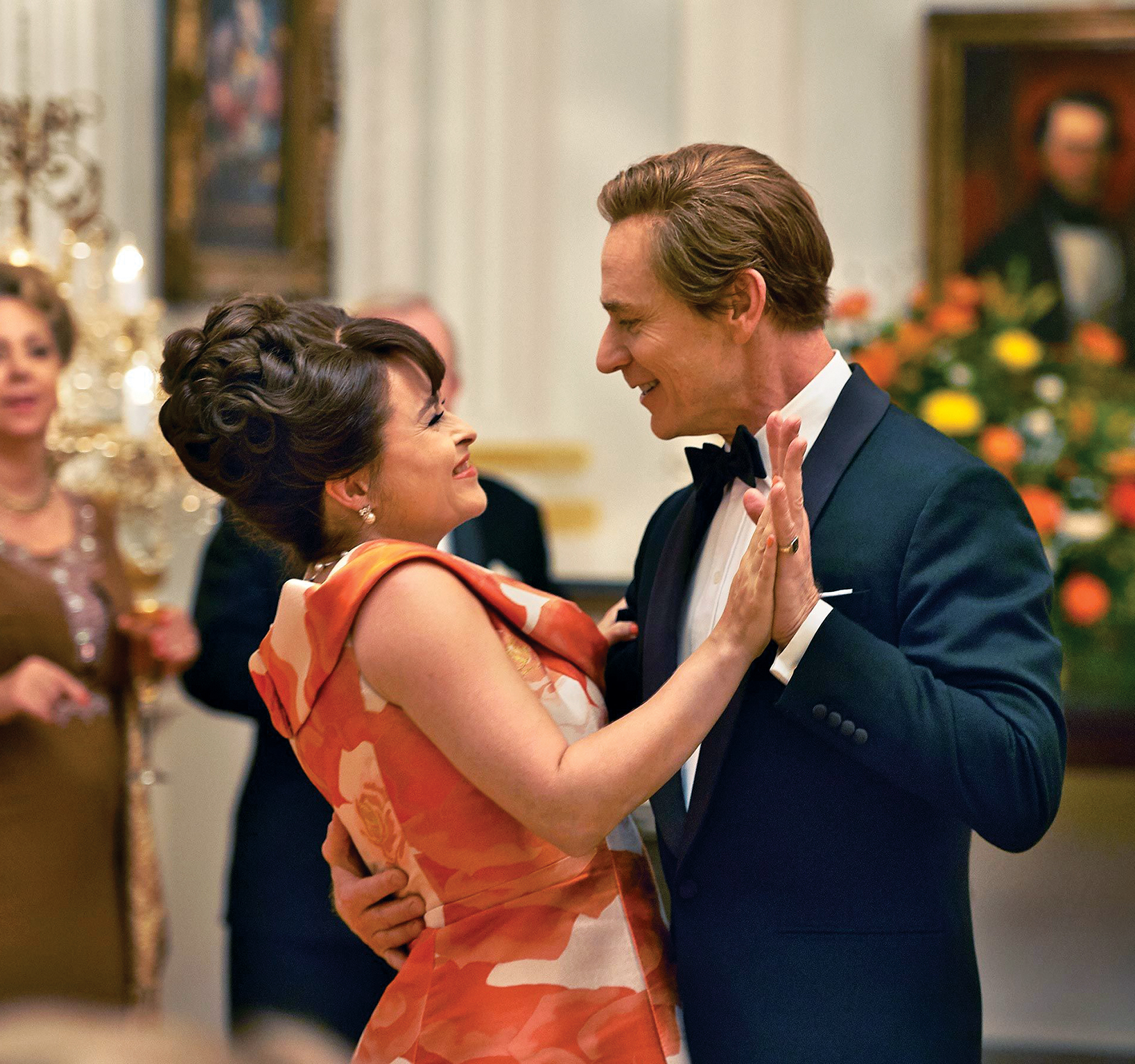
Royalty has the weirdest effect on people. Just as leftist, republican types are always trotting up to the palace to receive honours they know in their hearts they should have turned down, so it is with the nation’s TV critics, who seemingly find themselves utterly unable to resist Peter Morgan’s long-running soap opera, The Crown (17 November). Actually, when you think about it, we’re even more pathetic than they are. I mean, at least they’re getting the real thing. We’re just getting Olivia Colman in a hat that looks like it’s covered in marshmallows.
Time to break ranks, I think. Yeah, yeah, I loved the first series. It had… majesty: a cloistered, almost ethereal strangeness that was largely, if not entirely, born of the fact that it portrayed a time not so distant from our own, and yet which seems to us so dusty and peculiar. Plus, the clothes were delightful. I liked the second series, too, though I didn’t snort it up my nostrils quite the way I did the first.
Series three, however, is a different matter. Although it includes some of the best performances The Crown has ever given us – Tobias Menzies’s turn as Prince Philip is astonishing: here is a royal automaton and a horribly damaged human being – there’s really no ignoring its longueurs. An entire episode is, for instance, devoted to the efforts of Charles (Josh O’Connor) to learn Welsh ahead of his investiture as Prince of Wales in 1969. Sometimes this is touching, and sometimes it is comic. Mostly, though, it is rather boring. I only returned to full consciousness when Colman appeared in another of her bizarre hats (this one makes her look like a Cyberman whose plans to invade Caernarfon Castle have gone badly awry).
And what of Colman? Is she as good as Claire Foy, who played the younger Queen? I’m not sure. I started off feeling that she definitely isn’t, but then I began to think that she is just… different. Helena Bonham-Carter, on the other hand, is not half so good as Vanessa Kirby was as Princess Margaret – you can no longer hear the crackle of electricity every time she appears – though there is a camp mirth to be found in her affair with the gardener and failed pop star, Roddy Llewellyn (Harry Treadaway). Did HRH really buy the hapless Roddy a minuscule pair of budgie smugglers on the occasion of their first encounter? I don’t know, but I will now always hope she did.
Jason Watkins is excellent as Harold Wilson, and so – amazingly – is Michael Maloney as Ted Heath. But I wasn’t remotely convinced by Derek Jacobi as the dying Duke of Windsor. “We don’t want it to look like kabuki!” mutters dear, disgraced David, as make-up is applied to his face ahead of a visit to his Bois de Boulogne residence by Emperor Hirohito (Wallis is determined that he looks healthy for the cameras). It’s a good line, but what makes it truly hilarious in context is that Jacobi sounds so much like his character in Last Tango in Halifax. You half expect him to say: “I got this foundation in a three-for-two in Boots.”
The way Morgan has divided his material in this series feels schematic: roughly speaking, it’s divide and rule, one episode per character. The high point is Prince Philip’s mid-life crisis, brought on by the moon landings. Its low point is, well, I’ve already mentioned Charles’s struggles with yr iaith Gymraeg. The Aberfan disaster is sensitively done, but Morgan rather throws away the death of the Duke of Windsor; I could have done with a bit more of that black crow, Wallis, cawing the odds at her in-laws.
Oh, yes. I suppose you’ll be wanting to know about Camilla – Di and her pie crust collars haven’t arrived yet; they’re for series four – who’s played by Emerald Fennell. Well, she’s pretty hot stuff: fags, flick-y hair, good bedtime chat on the pistachio-coloured Trimphone. If The Crown is indeed a soap, then she is the young Deirdre Barlow. This, of course, makes the Queen Mother, determined to put an end to her relationship with Charles, Annie Walker, once the landlady of the Rover’s Return (Annie regarded Deirdre as a “harlot” for going after her son, Billy) – which seems just about right to me.
The Crown
Netflix
This article appears in the 13 Nov 2019 issue of the New Statesman, How Britain was sold



